Tear down high walls with care and understanding
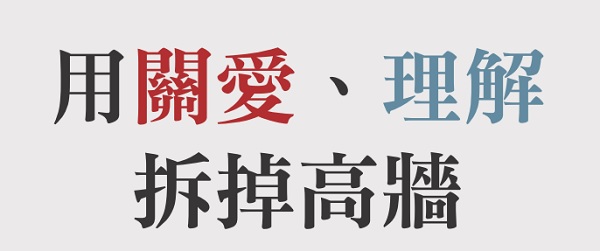
A series of cases in which white police officers killed black people (George Floyd, Rayshard Brooks, Breonna Taylor) broke out in mid-2020, which also triggered demonstrations by people in many cities. Ordinary Chinese people may wish to stay away from these issues, and at most they can comment on who is right and who is wrong after dinner. Will these issues affect our lives? In many Chinese families, the indifference of the older generation has caused dissatisfaction in the second generation. You and I need to confront social issues.
Because of my experience, I offer different perspectives here, hoping to use a caring heart to deeply understand the lives of those involved, resolve stereotypes, tear down walls, and build bridges.
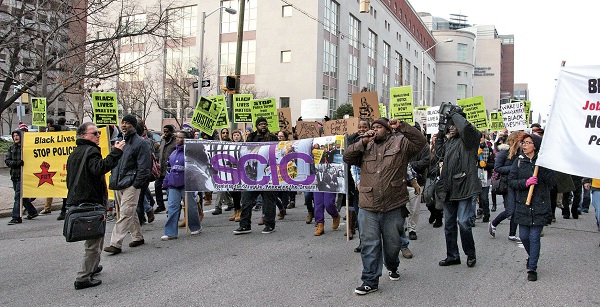
▲A series of cases in which white police officers killed black people broke out in mid-2020, which also triggered demonstrations by people in many cities.
Experience said: teaching methods and background
Regarding the issue of racial equality, the author published papers and lectures at seminars across the United States in 2003. The focus of my teaching is to resolve the barriers between people by understanding each other's stories.
When studying for a master's degree, the teacher of one course required students not to wash their hair or shave for a month, and to sleep on the street with street friends for three days and three nights to experience their world. This coursework gave me a huge breakthrough.
In the missiology course I teach, there are two unique assignments: one requires students to interview leaders of other religions to gain an in-depth understanding of how to write persuasive leaflets for them; the other requires students to interview leaders they do not like. An individual or a group of people, thorough enough to be able to write a memorial speech for the other person. The students were initially frightened because the assignment required them to take off their armor, but in the end they rushed to the stage to report.
Over the years, student interviews have included leaders of almost all religions and people of all types, including different races, nationalities, ages, sexual orientations, social classes, professions, and more. Politicians say, "There are no permanent friends, and there are no permanent enemies." The breakthrough in this coursework can be said, "There are no permanent enemies, because they can all become friends."
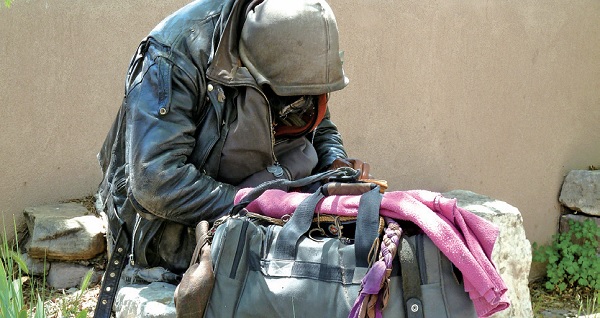
▲We often have to step out of our comfort zone to get to know the groups we exclude. The assignments assigned by the author allow students to face issues related to different ethnic groups.
The Bible Says: The Samaritans in Jesus’ Eyes
Some scholars say that the Gospel of Luke is a gospel for disadvantaged groups. It repeatedly mentions Jesus’ kindness and compassion towards the poor and weak. More importantly, this book invites the wealthy to participate in Jesus’ “downward identification” (rather than busy fawning upward) and experience the true meaning of life. It can also be said that the Gospel of Luke is truly good news for the rich.
Luke 10:25-37 is a familiar story of the Good Samaritan, and I believe we have heard countless wonderful interpretations of it. The real point is that the condemnation you and I may not want to face is directed at the lawyers, priests, and Levites, the "good Christians" in the eyes of the people. "How to gain eternal life" here is the selfish desire of a person with a high reputation. The Samaritan represents all the people I despise, even hate, but whom Jesus praises. Does Jesus think the opposite of us?
Chapter 17 verses 11-19 mention that ten lepers were healed, but only one remembered to be grateful. We all say that we are sinners by grace, but can your and my life attitudes reflect this identity? Jesus once again praised the social pariahs who had no social status or worth, but never forgot to be grateful. Why does Jesus think differently than we do?
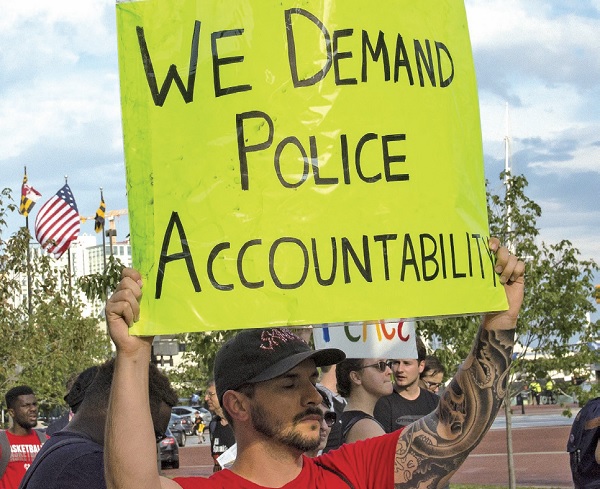
▲The direction of media reporting can affect the public’s views on events. This time, the American public's opinion of the police has been greatly reduced. The police must reflect on themselves, get rid of their "police" style, and truly gain the people's trust.
Topic: News Impact
The source of information we consume has a great impact on our personal thinking. Is the source of the information accurate and comprehensive, or does it come only from the comments of others? Reports that support the victim will delete his resistance in the video, show a decent photo, and report his kindness. Pro-police news will emphasize the suspect's violence, show ugly photos, and expose his criminal record and bad habits. Our impression of political parties can also be biased by the direction we choose to report on.
Take Brooks' case as an example. There are reports that the police pulled Brooks out from his sleep in an empty parking lot and arrested him for drunk driving. He was later shot and killed by police as he took out a less-lethal defensive weapon and fled. Of course the police officer should be convicted of first degree murder.
Another report said that Brooks was drunk in the drive thru lane and the attendant couldn't wake him up, so he blocked others and called the police. From the video of his fight with the police, it is seen that when he ran away, he turned around and wounded the policeman with a stun gun he grabbed from the police, so the police opened fire. Later, it was reported that Brooks was on parole. If he was arrested for drunk driving, he would be immediately sent back to prison to serve his sentence, so he desperately resisted.
I curiously studied the police stun gun. It should be the most difficult weapon to snatch. Except for the part held by the hand, other parts of it emit high-voltage electricity. It is more painful than holding a knife with bare hands. In police training, it is emphasized that gangsters must not be allowed to steal the assembled weapons, resulting in a life-and-death outcome. It is not easy to snatch away a stun gun with force and skill. This shows how much the trend of news reporting and the content of selective reporting have an impact on the judgment of events.
In a conflict, it is easier to jump to conclusions if you only listen to one side. Social media can easily consolidate the ideological bias of a group, which does not help our thinking and judgment to grow.
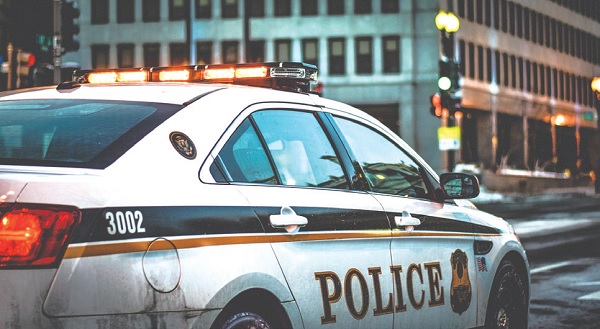
▲Due to professional training and daily exposure to violence, police respond to incidents differently from ordinary people.
Correlation, Causation,
Generalization
When data prove a correlation, it does not necessarily mean there is a causal relationship, nor can general generalizations be made. For example: In the United States, the crime rate of black people is indeed higher than that of other ethnic groups (correlation), but it does not mean that they are involved in the crime because they are black (causation), nor can it be one-sided to say that black people are all bad people (general summary).
I have very good black friends, and I can’t just generalize that they are all the best. It cannot be concluded that there is a direct causal relationship based solely on correlation, nor does it mean that there is no possibility of indirect causation. Poverty and family breakdown are indeed causally related to crime. This is also true in other countries, but it is not as serious as in the United States.
Experience accumulates into attitude
Everyone begins to shape and accumulate their attitude towards others from birth, which is inevitable. For example, people who grow up in an environment of scarcity are less likely to be generous; those who experience more good things in life are more likely to have a happy and beautiful world. Outlook on life; more experiences of violent conflicts will create a mentality of hatred towards society.
We cannot judge why others are not as optimistic as ourselves, because everyone’s experience is different. Different ethnic groups, people engaged in various professions, have accumulated different experiences over the years. Different religions, social classes, or opinions can be causes of conflict. Basically, the more contact there is, the more conflict there will be. Stereotyping is even more severe when categories are based on physical characteristics.
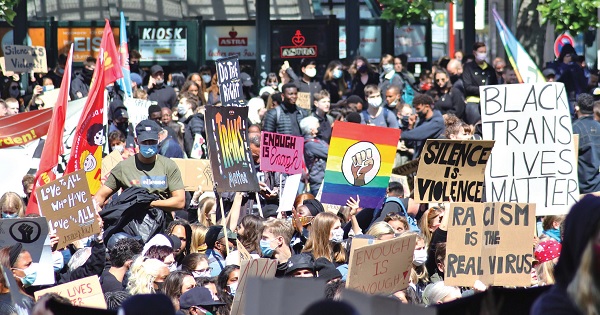
▲The next generation of Chinese people are dissatisfied with their parents who only care about their studies and work and do not care about social issues or express their opinions. We need to face and care about social issues wisely, after all, they are closely related to our lives.
Position: Views from both sides and discussion of examples
black people's position
community troubles: In the United States, a higher proportion of black families are trapped in a vicious cycle of poverty and fragmentation than white families, which is a serious social problem. The black babies in 73% are born out of wedlock, and these children often have a difficult upbringing. In terms of proportion, they believe that schools are a place where trouble often occurs, laws are set by middle- and upper-class people, politeness is of little value, and only the strong can survive.
Example: A family used their hard-earned salary to buy a bicycle as a birthday gift for their son. Because the receipt was not kept, it was confiscated during a police search just after the Los Angeles riots in 1992. The experience left the family with a lifelong resentment against the police.
resist arrest: A long-standing grudge against the police, coupled with the need to survive strongly, makes such people bound to resist with all their might when faced with the indignity they suffer when arrested. In an NBA game, a star player lost control of his emotions and got into a fight, causing the team to lose its qualification for the world championship. The next day, I talked about it with a fellow black professor. He believes that the player's reaction was completely justified and that the problem was not him but the person who made him angry. He also said that banning American football players from dancing to celebrate after scoring is completely racist because white people do not understand black culture.
What I have said here is not to support resisting arrest, but to understand the motivations and background of those who resist.
systemic discrimination: My African-American leader friends may have some differences in their views on certain issues, but they all agree that the core of the most serious problem is "systemic Racism", which covers history, politics, and Christianity from top to bottom. interpretation and teachings. But I don’t completely agree, and I even think that a blaming mentality cannot solve the problem. Because of this mentality, they have been taught from an early age that hard work is useless, so they give up on themselves. However, we must first put aside our own opinions and thoroughly understand the feelings and positions of the parties involved.
The situation of the police
Police experience accumulated: Police officers are more sensitive to dangerous situations than the average person because they often face the tragic consequences of accidents. My police friend said that he would never go hiking alone, because when he passes someone, just a slight touch from the other person may push the person down the valley. Police cars and ambulances cannot arrive, and there is no signal on the mobile phone. It is difficult to Please help. They believe that every home should be equipped with an efficient alarm system, cars should be equipped with driving recorders, and they should be ready to fight back against violence from strangers at any time. But most people feel that there is no need to be so arrogant.
The lesser of two evils: When a conflict breaks out, will the police choose to defend themselves (not only to save their lives, but also to avoid being injured in vain), or will they follow the rules? If they have the ability, almost everyone will choose preemptive strike. Especially if the police have encountered a suspect with hidden weapons or an advanced karate expert, they can only choose to use the strongest subjugation method first.
police discrimination: Where there are more contacts between blacks and whites, the problem of discrimination becomes more serious. Of all occupational categories, police officers have the most contact with violent prisoners. Therefore, some police officers harbor the deepest discrimination subconsciously. They also have union and qualified immunity legal protections, so officers who engage in deep-seated discrimination are rarely sentenced or disciplined.
Having power, responsibility, and being the target of blame: It’s not just white people who have a discriminatory mentality towards black people. Black people also have a discriminatory mentality towards other ethnic groups (including Chinese). However, when the discrimination does not involve power, society does not notice its seriousness. In the current American society, white people still have the most power. Although they are also the most responsible for reversing discrimination, they have also become the main target of condemning discrimination.
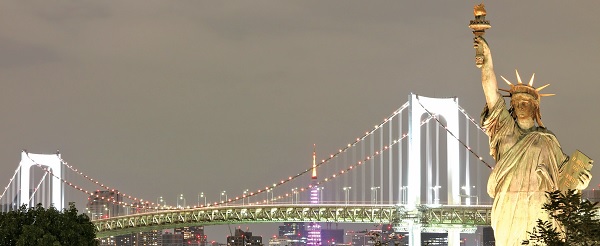
▲Care about social issues wisely, after all, they are closely related to our lives. The existing freedoms were obtained by our forefathers at the cost of their lives. Shouldn't we also strive for more freedom with brave and responsible actions? I hope that you and I can have the mind of Christ and become a bridge of justice and peace.
Reflection: Chinese and Discrimination
in one's own eyes
It is human nature to think that you are not a persecutor, but a victim - so you work harder to study and work under unequal treatment, earn a living to protect your family, and do not intentionally harm others.
However, when we only care about ourselves and pursue living in a luxury house and driving a fancy car, the black people demonstrating will classify us as the same persecutors as white people. If we receive social assistance or resources with a "take nothing, get nothing" mentality, white supremacists will classify us and black people as parasites in society.
In Western democratic thought, those who do not participate in the struggle for democracy and justice are equivalent to supporting evildoers. I do not agree with going out to demonstrate during this severe epidemic, but I do not advocate indifference. My daughter thinks that not going out to demonstrate means that I am also a typical selfish and discriminatory conservative. Just like this, we will encounter people from different cultures or holding different views without leaving home, and we cannot escape our responsibility to face social issues.
Not all social movements are constructive, and many social movements misunderstand the meaning of freedom. I think people often don't know that one of the core spirits of democracy is "responsibility", even at the cost of life, rather than freedom to make trouble. Our current freedoms were obtained by our forefathers at the cost of their lives. Shouldn't we also strive for more freedoms with brave and responsible actions?
Build bridges, tear down walls
We need to take responsibility. Whether it is news or opinions, it is advisable to read or listen to viewpoints from different perspectives to understand the ethnic groups we have treated with prejudice in the past and the uncomfortable arguments, and to break through closed stereotypes.
In a poor neighborhood in Northern California, a care organization advocates "unlocking the door." The door of the institution's house is not locked, and we believe that the quality of life does not lie in material things, but in checking and balancing crime with care, forgiveness, sharing, trust, honesty, and mutual help. They openly stated that if something was stolen, it meant that someone in the neighborhood was in greater need and therefore would not pursue it. That neighborhood went from having the highest crime rate to the lowest. Your and my lives are connected, even hostile lives can be connected. Just wait for you and me to be the messengers of peace, identify downward, and build bridges. I hope our prayers will stop at asking God to change others, and ask the Lord to look into our hearts, help you and me to be less selfish, make better use of resources, think more about others every day, take one more righteous action, and do one more thing. Contributions of love accumulate and grow day by day. If we treat our neighbors with care, forgiveness, sharing, trust, honesty, and mutual help, maybe we can check and balance the discrimination and contradictions in our hearts and tear down the high walls between people?
Professor Zou Jian, born in Taiwan, immigrated to the United States at the age of 13, and holds a Ph.D. in Fuller Seminary. Influenced by both parents being teachers, I also love teaching. He has taught in communities, churches, kindergartens, and seminaries, and has also served as dean of seminaries. I believe that God’s call is to devote myself to caring for the disadvantaged and to bridge the gap by studying people’s life stories.
